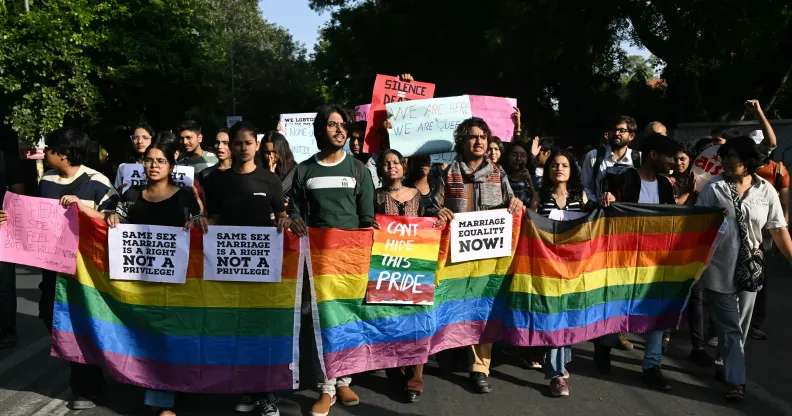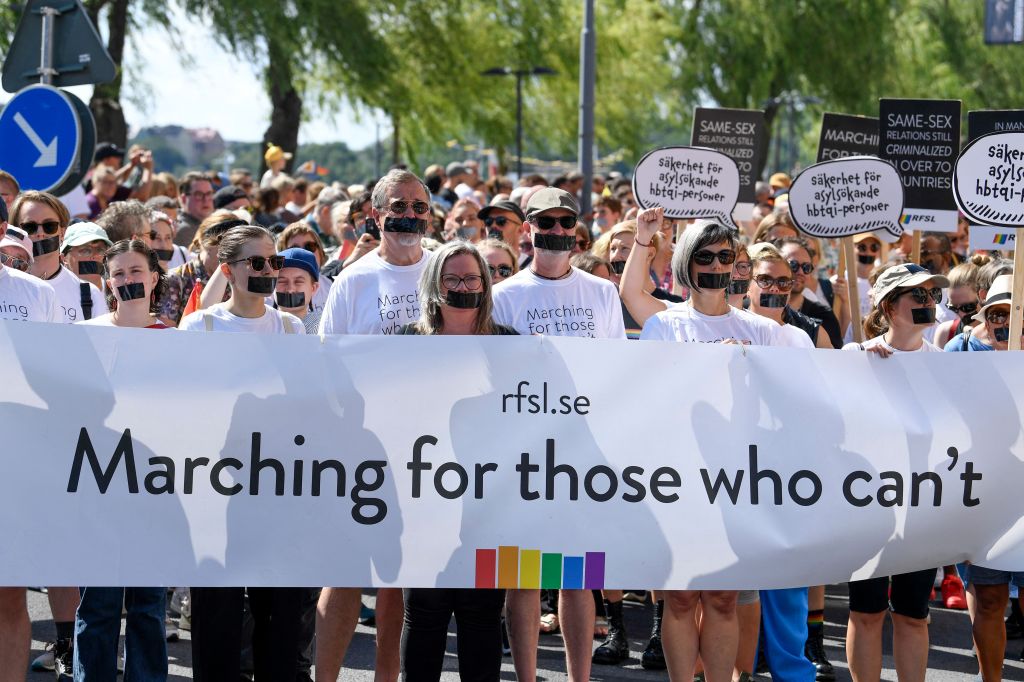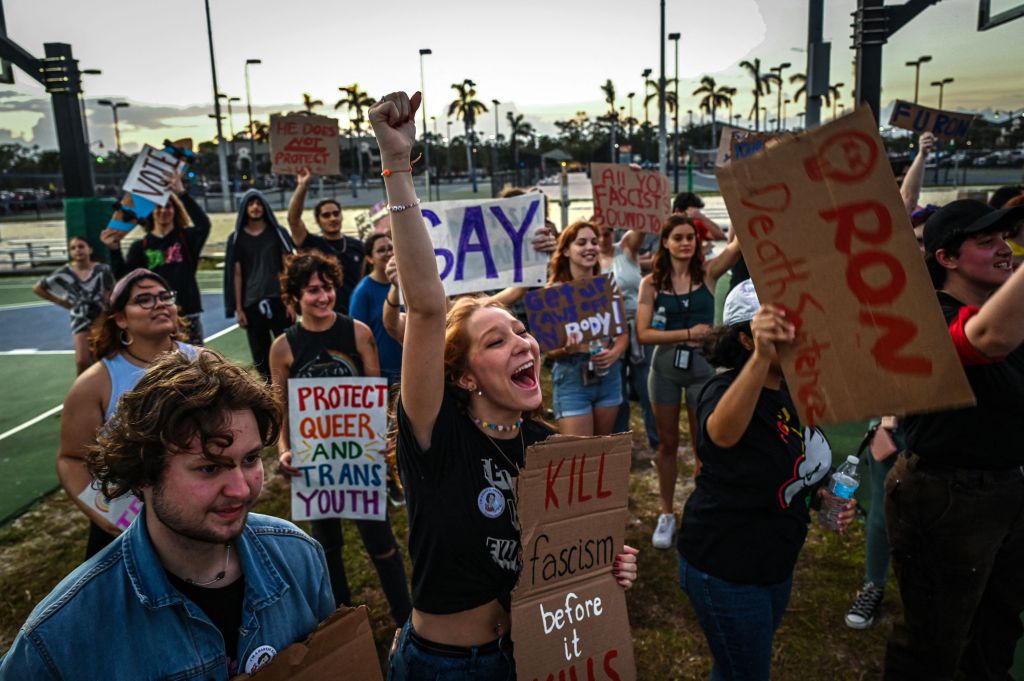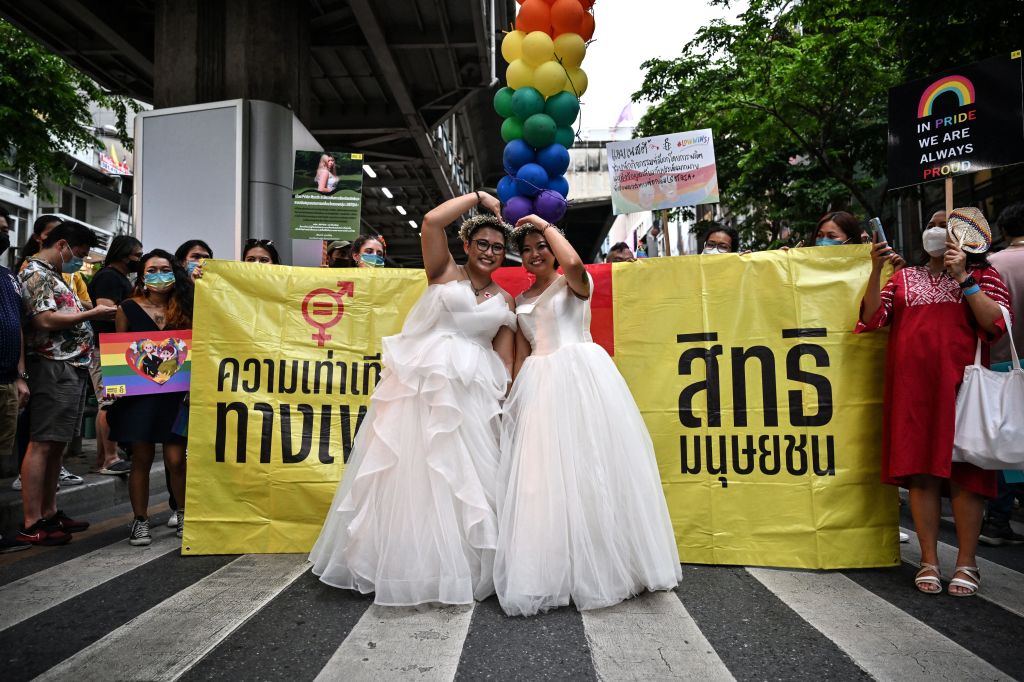New study shows where in the world support for same-sex marriage is highest – and lowest

Research shows vast differences in attitudes towards same-sex marriage around the world. (ARUN SANKAR/AFP via Getty Images)
A recent study conducted by the Pew Research Center has revealed vast differences in attitudes towards same-sex marriage around the world.
The report, which covers research carried out over the last two years, revealed that only 2 per cent of adults support same-sex marriage in Nigeria compared to 92 per cent in Sweden.
The survey contains a larger data set than it did previously: up from 24 countries in June this year to 32 countries now. It breaks down the views held by people by several factors, including geography, age, gender, political ideology, religion and legalisation, and the results make for very interesting reading.
People in Western Europe stood out as comparatively staunch supporters of same-sex marriage, notably Sweden, the Netherlands, Spain, France and Germany, where equal marriage is legally recognised as well.

In the United Kingdom, three-quarters of adults (74 per cent) support same-sex marriage despite the Conservative-led country’s constant flip-flopping on the conversion therapy ban and a recent rise in anti-LGBTQ+ hate crime rates.
In Italy, 73 per cent of people favour same-sex marriage rights. However, the country has recently been in the headlines due to the far-right government placing restrictions on same-sex parenting rights, as well as implementing a national ban on surrogacy for same-sex couples.
On the other side of the spectrum in Europe, 41 per cent of adults in Poland and 31 per cent in Hungary support same-sex marriage. Both of the countries’ right-wing governments had been cracking down on the LGBTQ+ community for the past few years. However, Poland’s LGBTQ+ community saw some relief after the ruling conservative Law and Justice party (PiS) lost its majority in the October elections.
In the United States, which has seen a record number of anti-LGBTQ+ legislative activity this year, 34 per cent oppose same-sex marriage while 63 per cent support it. The study found that liberals were nearly twice as likely than conservatives to support same-sex marriage rights: 82 per cent vs 44 per cent.

Elsewhere, in Asia-Pacific, support for same-sex marriage is the highest in Australia and Japan, with three-quarters of adults in Australia and nearly seven in ten in Japan favouring legal same-sex marriage.
While Japan’s national legislature passed a law in June this year to “promote understanding” and avoid “unfair discrimination” towards the LGBTQ+ community, Prime Minister Fumio Kishida remains cautious about legally recognising same-sex marriage.
In Thailand, where 60 per cent of the population supports same-sex marriage rights, the Marriage Equality Bill has recently garnered cabinet approval and will undergo parliamentary debate in December.

South Africa remains the only place in Africa where same-sex marriage is legal, having legalised it in 2006. However, 59 per cent of South Africans oppose the practice.
Among the surveyed locations in Africa, Nigeria and Kenya emerged as the least supportive of same-sex marriage. Only 9 per cent of Kenyans approve of same-sex marriage, and if the country passes the anti-LGBTQ+ Family Protection Bill currently under consideration, it will impose several penalties on the LGBTQ+ community, including the death penalty.
Amongst many factors, education, religion and income of individuals have been mainly linked to differences in attitudes towards support towards queer relationships and marriage. The decline in democracy around the world and the rise in authoritarianism have also been linked to the deterioration of LGBTQ+ rights and hateful rhetoric.
For more stories about LGBTQ+ rights around the world, follow our dedicated Instagram account, @PNPrideForAll
How did this story make you feel?

